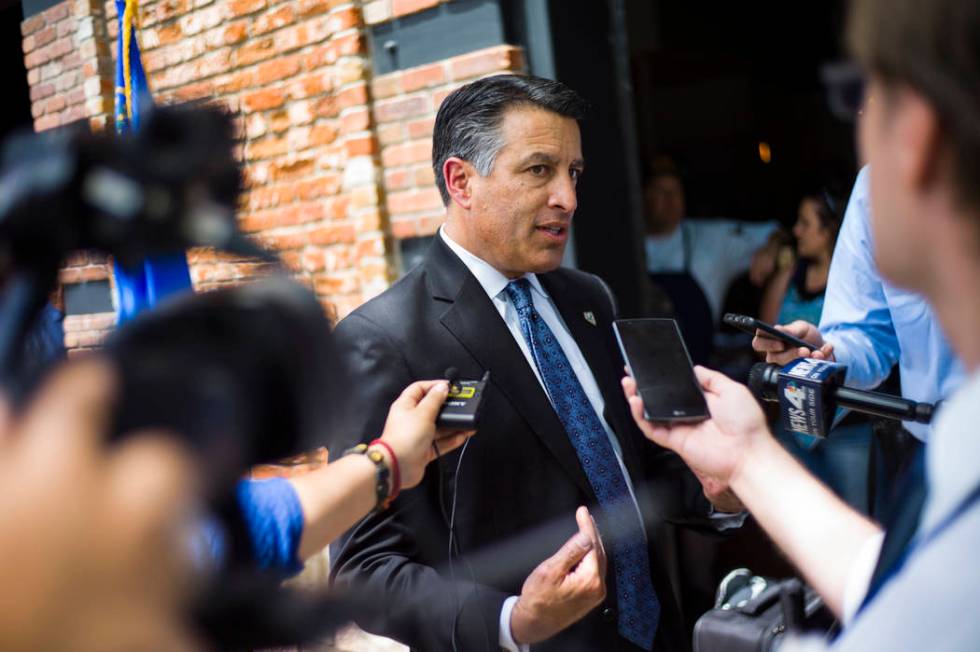Nevada scholarship program benefits from political deadlock over ESAs

A small scholarship program for low-income Nevada students got a $20 million boost in funding last week when legislators couldn’t come to terms on education savings accounts, or ESAs.
Opportunity Scholarships, which are awarded through the Nevada Educational Choice Scholarship Program, were the beneficiary of the political deadlock, receiving the one-time funding infusion as a balm to Republicans who had hoped to steer $60 million to fund ESAs over the biennium.
Launched after the 2015 legislative session, the scholarship program provides money for lower-income students to attend private schools or pay for other educational programs, like dual-credit courses. Since its inception, more than 1,600 scholarships have been awarded.
“It’s a program that has a track record of working,” said Brett Barley, a deputy superintendent in the state Department of Education. “We also know there’s incredible demand from families across the state. The dollars have gone quickly.”
Families with incomes of up to 300 percent of the federal poverty line can apply for a scholarship through one of four registered nonprofits. If they are accepted, the nonprofits connect them with a private school, determine the scholarship amount and pay the schools directly.
Funded by tax credits
The scholarships are funded through businesses that donate to the nonprofits in lieu of paying the state’s modified business tax.
The program was capped at $5 million for the first year in 2015 and is allowed to grow 10 percent each year. Businesses can claim up to the amount owed under the modified business tax, and donations must be approved by the Department of Taxation.
For the 2017-18 year, businesses will be able to donate a maximum of just over $26 million to the program. Under Senate Bill 555, the $20 million added by the Legislature will not be included in the 10 percent growth figure next year.
The funding was a compromise between legislators who couldn’t come to a deal to fund education savings accounts.
Last week, Gov. Brian Sandoval told reporters he was disappointed that ESA legislation didn’t work out but called the Opportunity Scholarship deal a worthwhile compromise.
“At the end of the day, it’s not about money,” he said. “It’s about kids and now these kids — more kids in our state — will have access to the school of their choice.”
ESAs vs. Opportunity Scholarships
The ESA program, which remains on the books in Nevada but is unfunded, is more universal than the Opportunity Scholarships. With ESAs, there was no income limit to apply and the money would go directly to families to be spent on the school of their choosing.
Although ESAs weren’t funded in Nevada this session, school choice experts expect the conversations to continue.
Sam Abrams, director of the National Center for the Study of Privatization in Education, said tax-credit scholarships like Nevada’s program are often more palatable than school vouchers or ESAs. Other states with such scholarships have either expanded eligibility to serve more students or maintained eligibility requirements but allowed more money into the programs over the years.
That might also happen in Nevada if the makeup of the Legislature stays the same in the future, Abrams said.
“Unless they have a Republican House and Senate it seems dead,” he said of ESAs.
Not all those who study school-choice programs agree.
“We know that this isn’t stopping the momentum. We know that ESAs are the future,” said Robert Enlow, the president and CEO of EdChoice, a school reform nonprofit. “We know that this debate is going to get harder and harder in legislatures because they’re getting closer and closer to true radical change.”
For more information on how to apply for a scholarship, visit the Nevada Department of Education website at doe.nv.gov.
^
Contact Meghin Delaney at mdelaney@reviewjournal.com or 702-383-0281. Follow @MeghinDelaney on Twitter.
Registered Scholarship Grant Organizations by Las Vegas Review-Journal on Scribd
School choice, defined
School choice is an all-encompassing term for a number of different programs, both in the public and private school arena. School districts offer magnet programs and charters, which are free, but may require an application. Many states run at least one private school choice program.
Here is how education experts define some of the different programs:
Voucher: Vouchers go directly from the state to private schools for families. The money may come from a state’s education budget or a separate pot of money. Nevada does not have a voucher program on the books.
Education Savings Account: ESAs flow directly to families, who can use the money on a wide array of education choices. The money may come from a state’s education budget or a separate pot of money. Nevada has an ESA program written in law, but the program was not funding this session.
Tax-credit scholarships: Businesses donate money to nonprofits, in lieu of paying a state tax. The nonprofits then give money directly to private schools, in the form of scholarships, for students. Nevada introduced a tax-credit scholarship program after the 2015 session.